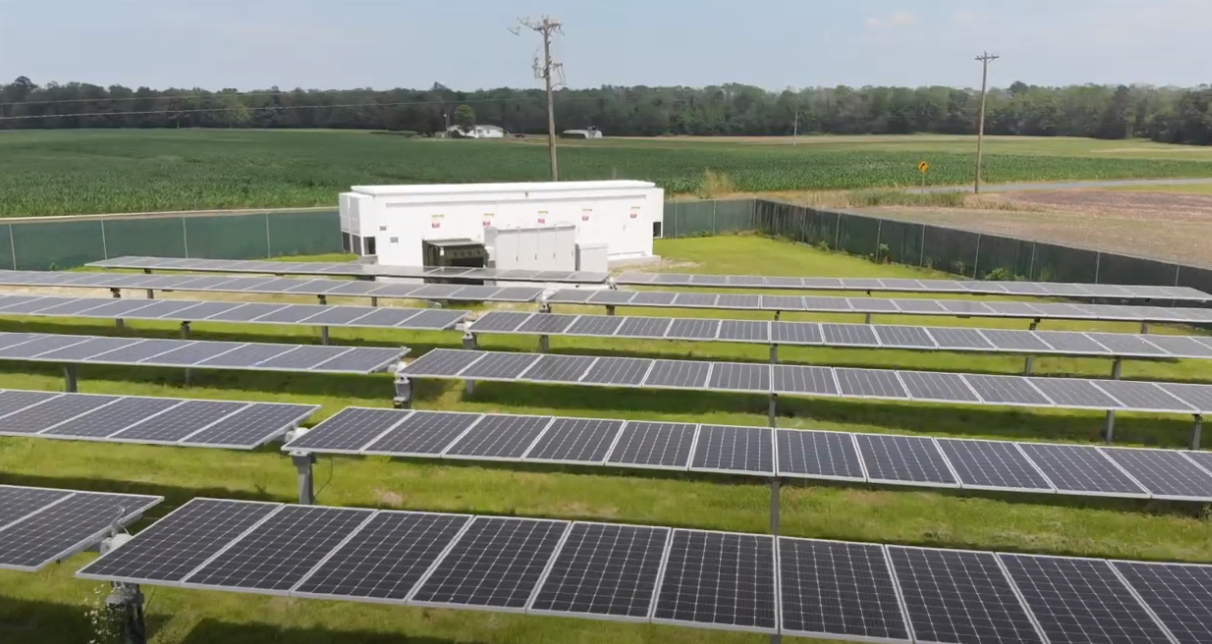What You Need to Know: Renewable Energy Credits for On-Site Solar PV

Renewable energy resources are critical drivers of a more eco-friendly and sustainable future—and increasingly cost-competitive. With businesses actively working to reduce carbon footprints and adopt cleaner energy solutions as energy prices continue to rise, on-site solar photovoltaic (PV) systems have become increasingly popular and valuable.
This blog covers the concept of Renewable Energy Credits (also known as Renewable Energy Certificates or RECs) and aims to illuminate why businesses should consider deploying RECs, especially in conjunction with on-site solar PV.
What the Heck is a REC (aka RECs 101)?
A REC is proof of the clean energy benefits of a renewable generator, such as solar or wind. With renewable generation, one party can get the electricity, and another party can buy the RECs, which gives them the credit for the clean generation. Legally and financially, renewable energy can be bundled or unbundled.
Broadly speaking, RECs are designed to financially compensate for the environmental benefits of producing renewable electricity. In other words, RECs are market-based instruments establishing legal ownership of the environmental attributes of renewable electricity. More specifically, a REC is generated for each megawatt-hour (MWh) of renewable electricity delivered to the grid.
Businesses that generate more renewable electricity than they consume can earn (or sell!) RECs.

How do RECs Work?
RECs serve as tools for accounting and assigning ownership to renewable electricity production and consumption attributes. By legally assigning ownership and production value, RECs become the claims for renewable electricity consumption.
When your business generates renewable energy—verified through RECs—it ensures that the electricity is sourced from low- or zero-emission renewable sources, reducing market-based scope 2 emissions.
These credits are vital in addressing indirect greenhouse gas emissions (GHG) associated with purchased electricity, which help calculate emissions from purchased electricity for each megawatt-hour of renewable energy.
Your business can actively participate by generating OR purchasing RECs to offset its carbon emissions, fostering the growth of the renewable energy sector, and contributing to the fight against climate change.
The Benefits of On-Site Renewables and RECs
In pursuing increased corporate sustainability and responsibility (CSR) goals amidst the global threat of climate change, businesses actively seek more ways to align operations with sustainability. RECs are one way to support this goal.
💲 Financial Incentives: RECs are designed to compensate you for the environmental benefits of producing renewable electricity, providing an additional revenue stream from your on-site solar system. Businesses that purchase RECs may qualify for tax deductions tied to their renewable energy investments. These deductions can lower taxable income.
To maximize the benefits of your renewable energy production, consider collaborating with a partner like Convergent Energy and Power, a leading provider of energy storage and solar solutions across North America, to implement a Power Purchase Agreement (PPA) for energy and RECs. This strategic partnership ensures that REC owners can substantiate emissions reductions by having a REC for each megawatt-hour (MWh) of renewable energy purchased through the agreement.
♻️ Sustainability Goals: Incorporating on-site solar PV is a pivotal step towards sustainability, and RECs can play an important role in demonstrating a business's commitment to reducing its carbon footprint. Businesses actively support renewable energy generation by utilizing RECs, aligning with broader sustainability goals.
🌎 Environmental Leadership: Environmental leadership through on-site solar PV and RECs goes beyond mere compliance with regulations; it represents a proactive stance towards creating a sustainable future, influencing stakeholders, and securing the business' position as a responsible corporate citizen. Further, investing in on-site renewable energy and utilizing RECs showcases a business's dedication to and leadership. Some businesses choose to “retire” rather than sell their RECs to further support sustainability goals.
Should I Consider Battery Storage in Addition to Solar PV?
The more solar energy on the grid, the better—but solar PV only produces power when the sun is shining. Energy storage (typically in the form of battery storage) can “firm up” solar energy, maximizing its value to the grid. In addition, battery storage can reduce the cost of electricity (storing energy when it is cheapest, dispatching it when it is most expensive). When paired with solar PV, (solar-plus storage), the system can store and discharge solar energy rather than energy from the grid.
The ability to use stored energy when it is least expensive and use that energy when it is most costly is particularly valuable for businesses with high transmission and capacity charges. Reducing a facility’s consumption during the most expensive hours on the grid, known as “peak shaving,” can yield seven-figure savings on a facility’s utility bill.

In a majority of cases, on-site energy storage maximizes the value of solar PV and reduces business energy costs. In addition to reducing energy costs, solar-plus-storage provides a hedge against future cost increases (both supply and transmission).
Take the Next Step: How to Start Generating RECs for Your Business
On-site renewable energy (and the available RECs) is a win-win for businesses looking to save money and lower their carbon footprints. Leveraging each megawatt-hour of clean energy through RECs validates your commitment to sustainability and opens avenues for additional revenue. While monetizing RECs provides a short-term financial boost, integrating battery storage (solar-plus-storage) enhances this synergy, allowing your business to solidify solar energy and strategically manage electricity costs. This comprehensive approach maximizes the economic and environmental benefits of your renewable energy initiatives and positions your business as an environmental leader, contributing to a cleaner and more sustainable future.
Convergent was founded over a decade ago. Throughout that time, we’ve worked closely with businesses to take the hassle out of on-site renewables by building, owning, and operating systems on their behalf—and earning them RECs in the process. We’ve lowered our customers’ energy bills up to 40%. The more you spend on your energy bill, the more you can save with on-site renewables.
The best part: there’s no capital required from your business. The shared-savings contract Convergent offers means we share in the upside and only make money if our customers do.
Our tagline is “Powered by Results.” We have delivered millions in savings to our industrial customers while enabling them to access cleaner, more reliable power. This opportunity is a win for all involved, including our planet.
To learn more about how on-site solar PV or solar-plus-storage can generate RECs for your business, schedule a free, no-obligation introductory call with our team today.


